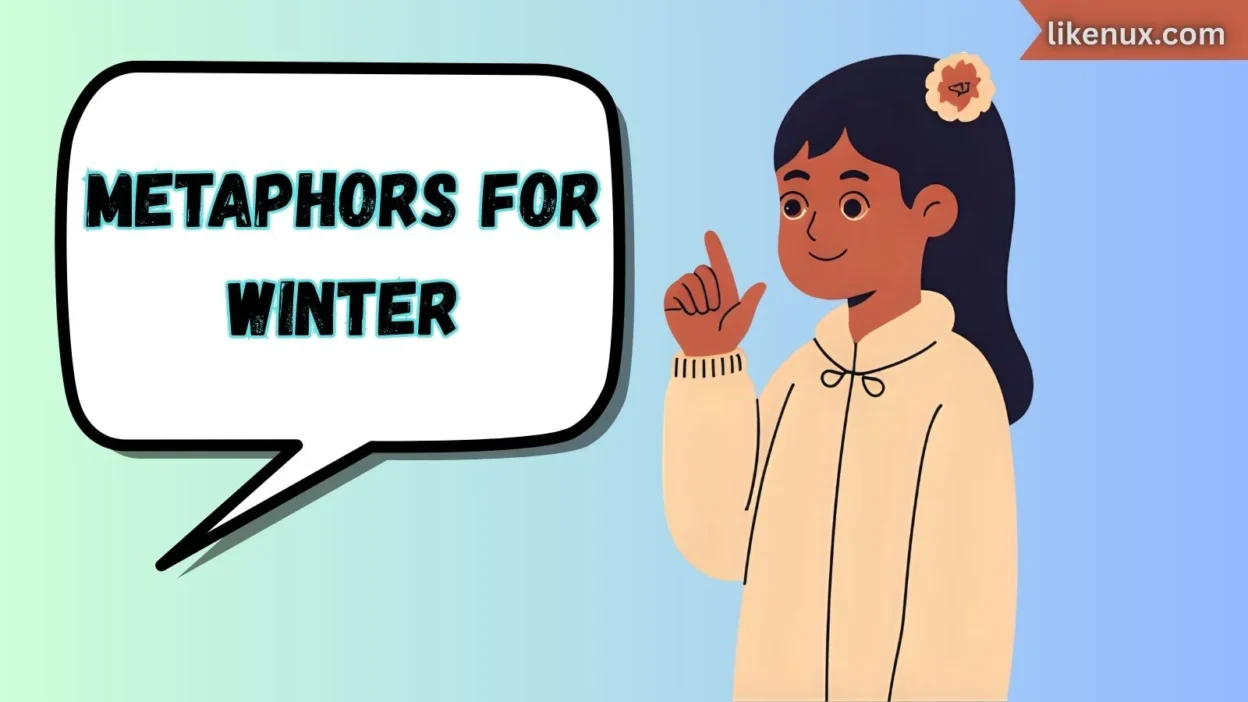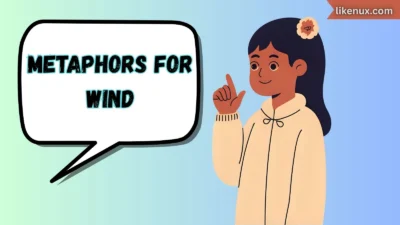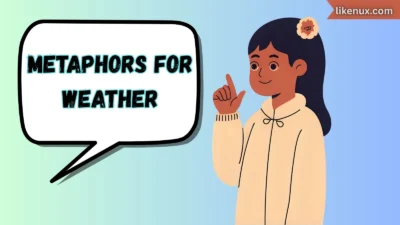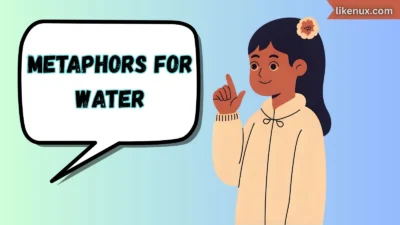Winter is more than just a season of snow and cold winds—it’s a canvas of emotions, reflections, and beauty. Many people search for the right words to describe winter in a way that feels warm, poetic, and personal. That’s where metaphors for winter come in. Metaphors help us express feelings, paint vivid pictures, and communicate meaning in ways that plain words often cannot. Metaphors for Winter.
In this article, I’ll share 25 powerful metaphors for winter, each explained in a simple way, with examples and alternatives. These expressions can help you in writing, storytelling, or even sharing thoughts in conversation. I’ve also sprinkled in my own experiences of winter, so this guide feels personal and real.
Whether you’re a writer, a student, or simply someone who loves words, you’ll find inspiration here.
1. Winter is a Silent Blanket
Meaning: Winter wraps the world in silence and stillness.
Sentence: “The night felt peaceful, as if winter had covered the earth with a silent blanket.”
Best Use: To express calmness, quiet, or solitude.
Other Ways to Say: Winter hush, frozen silence, snowy stillness.
Read More: Metaphors for Tired
2. Winter is a Harsh Teacher
Meaning: Winter teaches us resilience and survival.
Sentence: “Winter is a harsh teacher, reminding us of the strength hidden within.”
Best Use: Motivational writing, reflections on endurance.
Other Ways to Say: Stern guide, cold mentor, seasonal lesson.
3. Winter is Nature’s Pause Button
Meaning: Life slows down during winter.
Sentence: “Winter feels like nature pressed pause to breathe and reset.”
Best Use: Mindfulness writing, lifestyle blogs.
Other Ways to Say: Frozen stillness, seasonal rest, natural intermission.
4. Winter is a White Canvas
Meaning: Snow covers the earth like a blank sheet waiting for creativity.
Sentence: “The fields looked like a white canvas, waiting for nature’s brushstrokes.”
Best Use: Describing landscapes, artistic writing.
Other Ways to Say: Blank slate, snowy page, frozen painting.
5. Winter is a Cold Embrace
Meaning: It feels both harsh and comforting at the same time.
Sentence: “The cold air wrapped me in winter’s embrace.”
Best Use: Romantic or emotional writing.
Other Ways to Say: Frosty hug, icy touch, chill of love.
6. Winter is a Long Sleep
Meaning: Nature rests during the cold months.
Sentence: “The garden lay still, as if in a long winter sleep.”
Best Use: Describing dormant nature or rest.
Other Ways to Say: Seasonal slumber, frozen nap, hibernation.
7. Winter is a Mirror of Loneliness
Meaning: The cold and emptiness can feel isolating.
Sentence: “Walking alone in the snow, I felt winter was a mirror of my loneliness.”
Best Use: Poetry, emotional writing.
Other Ways to Say: Frozen solitude, icy isolation, cold reflection.
8. Winter is a Silent Symphony
Meaning: The quiet beauty of winter creates its own music.
Sentence: “The crunch of snow was part of winter’s silent symphony.”
Best Use: Creative writing, imagery.
Other Ways to Say: Quiet melody, frozen harmony, snow’s music.
9. Winter is a Stern Guardian
Meaning: Winter protects the earth by slowing life down.
Sentence: “Winter, like a stern guardian, forces everything to rest.”
Best Use: Symbolic or storytelling contexts.
Other Ways to Say: Watchful protector, icy keeper, frozen sentinel.
10. Winter is a White Prison
Meaning: The snow and cold can trap us indoors.
Sentence: “The storm made our home feel like a white prison.”
Best Use: Dramatic writing, expressing cabin fever.
Other Ways to Say: Snow trap, icy cage, frozen jail.
11. Winter is a Diamond Cloak
Meaning: Snow sparkles like gems covering the land.
Sentence: “The forest shimmered under winter’s diamond cloak.”
Best Use: Nature descriptions, poetic imagery.
Other Ways to Say: Crystal blanket, icy jewels, frosty shimmer.
12. Winter is a Storyteller
Meaning: Each snowfall feels like a tale being told.
Sentence: “Winter is a storyteller, writing new memories in snow.”
Best Use: Creative essays, children’s stories.
Other Ways to Say: Seasonal narrator, icy scribe, snowy tales.
13. Winter is an Empty Stage
Meaning: The world feels bare, waiting for life to return.
Sentence: “The trees stood like props on winter’s empty stage.”
Best Use: Dramatic descriptions, seasonal transitions.
Other Ways to Say: Silent theater, frozen stage, lifeless scene.
14. Winter is a Frozen Kingdom
Meaning: The land transforms into a majestic icy realm.
Sentence: “The mountains became winter’s frozen kingdom.”
Best Use: Fantasy writing, scenic descriptions.
Other Ways to Say: Icy empire, snow realm, frosty dominion.
15. Winter is a Test of Endurance
Meaning: It challenges us physically and emotionally.
Sentence: “For many, winter is a test of endurance.”
Best Use: Motivational or reflective pieces.
Other Ways to Say: Cold trial, icy challenge, seasonal test.
16. Winter is a Silent Healer
Meaning: Time and stillness can bring quiet healing.
Sentence: “Winter was my silent healer after a long year.”
Best Use: Mental health, self-care reflections.
Other Ways to Say: Frozen comfort, icy peace, cold restoration.
17. Winter is a Veil of Mystery
Meaning: The fog, snow, and shadows feel secretive.
Sentence: “Winter covered the town in a veil of mystery.”
Best Use: Storytelling, gothic or fantasy themes.
Other Ways to Say: Snow curtain, frosty fog, icy secret.
18. Winter is a Sleeping Giant
Meaning: Power and strength lie dormant beneath the snow.
Sentence: “The frozen lake felt like winter’s sleeping giant.”
Best Use: Symbolic writing, descriptive essays.
Other Ways to Say: Hidden power, frozen beast, icy slumber.
19. Winter is a Time Capsule
Meaning: Everything is preserved in ice and snow.
Sentence: “The branches held memories in winter’s time capsule.”
Best Use: Reflective writing, memory-based essays.
Other Ways to Say: Frozen record, icy vault, snowbound memory.
20. Winter is a Cold Sculptor
Meaning: Snow and frost reshape the land beautifully.
Sentence: “Icicles were carved by winter, the cold sculptor.”
Best Use: Nature or artistic description.
Other Ways to Say: Frost artist, icy craftsman, frozen shaper.
21. Winter is a Silent Witness
Meaning: It quietly observes life around it.
Sentence: “Winter was a silent witness to our childhood games.”
Best Use: Memoir or nostalgic writing.
Other Ways to Say: Quiet observer, frozen watcher, icy witness.
22. Winter is a Gentle Lullaby
Meaning: The calmness of winter can feel soothing.
Sentence: “The snowfall sang winter’s gentle lullaby.”
Best Use: Peaceful imagery, bedtime stories.
Other Ways to Say: Snow song, icy hush, frozen melody.
23. Winter is a Cold Mirror
Meaning: It reflects our inner emotions.
Sentence: “Winter was a cold mirror of my heart.”
Best Use: Emotional writing, poetry.
Other Ways to Say: Frozen reflection, icy truth, snow mirror.
24. Winter is a Diamond Cage
Meaning: Beautiful but confining.
Sentence: “The mountains sparkled like winter’s diamond cage.”
Best Use: Expressing beauty mixed with limitation.
Other Ways to Say: Crystal prison, frosty jewel trap, icy confinement.
25. Winter is a Waiting Room
Meaning: A time of waiting for spring to arrive.
Sentence: “Winter feels like nature’s waiting room before rebirth.”
Best Use: Seasonal reflection, life metaphor.
Other Ways to Say: Frozen pause, cold hallway, seasonal delay.
FAQs About Metaphors for Winter
1. Why use metaphors to describe winter?
Metaphors bring emotion and imagery, helping us go beyond plain descriptions.
2. Can these metaphors be used in poetry?
Absolutely! They add depth, beauty, and symbolism to poems.
3. Are winter metaphors useful for storytelling?
Yes, they make settings vivid and characters’ emotions richer.
4. How do winter metaphors connect to human life?
They often symbolize rest, hardship, reflection, or renewal.
5. Can I use these metaphors in everyday conversations?
Yes! They make your speech more expressive, creative, and relatable.
Conclusion
Winter is not just cold weather—it’s a season full of meaning, emotions, and lessons. Through metaphors, we can capture its beauty, silence, challenges, and mysteries. Whether you’re writing poetry, journaling, or simply trying to describe how you feel, these 25 metaphors for winter will help you express yourself with warmth, care, and depth.
From my own experience, winter has always been a season that made me pause, reflect, and sometimes feel both solitude and peace. I hope these metaphors inspire you to see winter not just as a chill in the air, but as a language of life itself.



